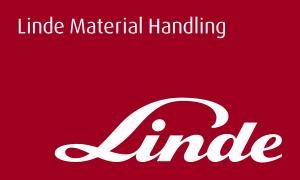Radar sensors set the pace
Increased safety with Linde SpeedAssist driver assistance system
The transition space between the indoor and outdoor areas of logistics centres and production halls is usually a safety-critical zone. Outdoors forklift drivers quickly accelerate their vehicles to top speed. Upon returning, they should reduce their speed in good time to bring their cargo safely to its destination and to protect all employees in the work environment. The “Linde SpeedAssist” supports both the drivers and the warehouse and logistics managers in charge of this task. Featuring weather-independent radar technology, stepwise adjustable response times and adjustable sensor sensitivity, the retrofit solution from Linde Material Handling (MH) sets a new standard and noticeably increases the safety in intralogistics.
Outdoors forklift drivers quickly accelerate their vehicles to top speed. Upon returning, they should reduce their speed in good time to bring their cargo safely to its destination and to protect all employees in the work environment. Featuring weather-independent radar technology the “Linde SpeedAssist” supports both the drivers and the warehouse and logistics managers in charge of this task.
The efficiency of logistic processes depends on the reliability with which these processes can be implemented and repeated. Especially inside warehouse and production halls, this also requires clear speed limits for forklifts and other industrial trucks. Entering the indoor area too fast can endanger employees and require sudden braking manoeuvers that can damage the load and thus result in economic losses. The ideal driving speed in the hall always depends on the respective conditions on site and is usually determined by the warehouse or logistics manager, who is also responsible for ensuring that the speed limits are adhered to.
Sensor range of up to 24 meters
The new driver assistance system, Linde SpeedAssist, offers a number of benefits in order to ensure fast, easy and practical speed control. Unlike other solutions on the market, the system does not rely on weather-prone and relatively expensive infrared technology, but on radar sensors that cover a range between 1 and 24 m. The use of radar technology does not require any additional investments, such as additional sensors on the racks, for example. This is due to the fact that the radar sensor is mounted on the overhead guard and is both the transmitter and the receiver of its own signal, which is reflected from the ceiling. This tells the truck whether it is inside a building or outdoors and adjusts its speed accordingly. Operational reliability is not affected even by extreme weather conditions such as cold, heat or heavy rain. The permissible operating temperatures range between -40 and + 65 °C.
Flexible response time and smart sensors
The response time of the Linde SpeedAssist sensors is adjustable and can be set to four different levels, which means it can be easily adapted to the respective conditions on site. Moreover, the adjustable sensitivity of the sensors is another feature that makes retrofitted forklift trucks safer to use. Unwanted signals can be blocked upon request. Because of the individualised settings, the system detects both smaller objects and superstructures such as pipelines, porch roofs or treetops without reducing the desired speed right away. So operators can work with high speed and maximum efficiency in outdoor environments.
Retrofit solution for purchase and rental trucks
The Linde SpeedAssist is a useful solution for retrofitting in existing fleets and upon request can be integrated in new trucks from the outset. Due to the low number of components and the simple installation and removal of the solution, the driver assistance system is also a viable safety option for rental vehicles. It is basically composed of three elements: the sensor, a set of cables with relay and the installation kit including a retaining device. Retrofit by a Linde service technician takes only a very short time. The manufacturer offers three different sensor variants in order to ensure compliance with the specific telecommunications guidelines in the target markets of Europe, USA, Canada, Brazil, China, Australia and New Zealand.

